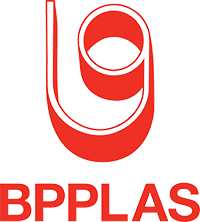BP Plastics ups production with new equipment

Production booster: BP Plastics’ new stretch film machine at its plant in Batu Pahat. (Inset) Group MD Lim Chun Yow.
PETALING JAYA: BP Plastics Holdings Bhd (BPP), one of the largest polyethylene filmmakers in Asia, is ramping up production amid the ringgit turmoil and volatile climate.
The Johor-based company beefed up its plastic operations with a RM13.5mil investment in a new 3m cast stretch film machine from Austria, a move to increase production capacity and boost exports.
Group managing director Lim Chun Yow said that with the commissioning of the machine in June, it intended to lift export sales to 80% of total revenue for the financial year 2015, from last year’s 78%.
The bulk of BPP’s exports was denominated in US dollar, followed by Singapore dollar and euro. The domestic market contributed about 20% to BPP’s topline.
“The investment is part of the group’s strategy to increase production capacity and meet with the challenging demands from the export market.
“The new machine is now based at our plant in Batu Pahat,” Lim told StarBiz through email recently, adding that the investment would contribute positively to BPP’s future earnings.
The group has a second plant located within the vicinity as well. The combined building size for both plants were 294,670 sq ft.
Although Lim didn’t wish to divulge on the plants’ production capacity, it was reported that the combined annual capacity for stretch films and packaging bags was nearly 60,000 tonnes annually.
BPP specialises in stretch and shrink films, used to protect and enhance pallet stabilisation during warehousing and transportation of goods, apart from making PE packaging film and bags. It is one of the top three stretch film producers in the country and exports to 51 countries.
For the first half of 2015, net profit was up 22% to RM7.8mil against a revenue that fell 9.4% to RM134mil.
The group said the better earnings was boosted by lower resin costs, but the lower revenue was due to lower domestic market sales impacted by the goods and services tax(GST).
An interim dividend of 3 sen per share for 2015 and a special dividend of 2 sen per share was paid out in July.
Lim pointed out that the falling oil prices was an advantage to the company as it relied on raw materials like resin and various types of polyethylene materials to manufacture its products.
Nevertheless, Lim said supply and demand of polyethylene, seasonal demand for the packaging film in the northern parts of China and inconsistent plant shutdowns impacted the price movements of polyethylene.
Apart from GST, he said the weakening ringgit had somehow softened domestic demand for locally produced goods.
To add to that, the volatile landscape had brought about some changes in the global demand for BPP’s products, he pointed out.
“Demand from countries like Japan, South Korea and China has slowed down,” he said.
Aside from Japan, South Korea and China, BPP’s key export markets include Singapore, Australia, the Middle East and Europe.
It is on the lookout for new markets to expand to and would diversify, if the opportunity arises at the right time.
BPP dissolved Baoman Rubber Ltd in Cambodia last September as it aborted plans to venture into rubber cultivation.
For 2014, BPP saw a rather flattish net profit, mainly due to higher utility and labour costs, on the back of revenue that hiked 17.8% to RM284mil on higher demand in the export market.
Nonetheless, BPP has over the past 10 years consistently paid out dividends.
The company increased its dividend payout to 6 sen per share in 2014, from 4 sen per share in 2011. This gives a market yield of 5.22%.
BPP is debt-free and has cash and cash equivalents of RM58.5mil as at June 30, 2015.
The stock is trading at a historical price earnings of 18.4 times and 0.83 times book value.
It closed two sen lower at RM1.10 on Friday.
